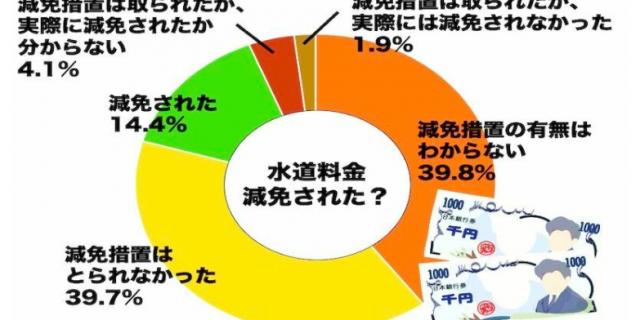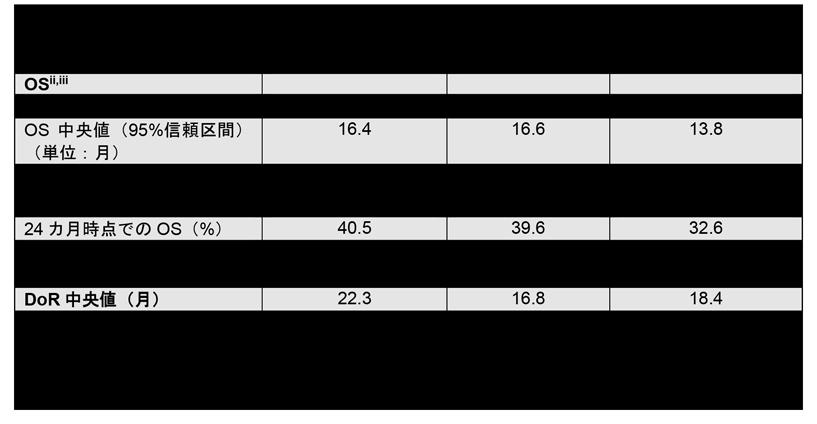Liberal Democratic Party lawmakers' concerns "Foreign capital is at risk of changing management policy" "Only Miyagi Prefecture is ahead"
On July 5, the Miyagi Prefectural Assembly passed a bill to sell the operating rights of water and sewage and industrial water to private companies for 20 years.
At this time, two ruling party groups and one opposition party group abstained from the vote. The reason is that the Japanese subsidiary of a foreign-affiliated company is included in the group of companies that outsource the business. "It cannot be overlooked from the perspective of economic security," and "it cannot be judged at present."
What does that mean? I would like to think about it while looking back on the circumstances.
On December 6, 2018, the revised Waterworks Law was enacted at the plenary session of the House of Representatives. The amendment also included the introduction of a concession system (sale of operating rights to the private sector for a long period of time).
The concession method is one of the privatization methods in which the government sells and entrusts operating rights to private companies while holding assets such as public facilities. Kansai Airport, Osaka Airport, Sendai Airport, Hamamatsu City's sewerage business, etc. are operated by this method. The method was also introduced into the water supply business, opening the door to substantial privatization.
Two years before the revision of the law, the 3rd Future Investment Conference held on December 19, 2016 was held under the theme of "opening public assets to the private sector." Therefore, the introduction of a concession system to the water supply business is being discussed.
Heizo Takenaka (at that time) made the following statement.
"Water and sewage has tens of trillion yen of aging assets nationwide. In Europe such as France and the United Kingdom, private water and sewage operations are relatively common, and annual sales are several trillion yen. It is emerging that the concession will rise and that IoT will be incorporated very dynamically to carry out the water supply business together with the Fourth Industrial Revolution. ”(Quoted from the minutes of the conference)
In other words, a concession is a neo-liberal policy that promotes economic growth by opening public services to the private sector.
Moreover, private companies can be domestic or foreign.
Two months after the 3rd Future Investment Conference.
On February 9, 2017, a meeting was held at the Miyagi Prefectural Government to consider the concession method. About 90 people from the Cabinet Office, Ministry of Health, Labor and Welfare, Ministry of Economy, Trade and Industry, Ministry of Land, Infrastructure, Transport and Tourism, major trading companies, financial institutions, etc. attended.
Here, there were positive voices about the concession method, such as "being a pioneer in the whole country" and "some know-how that cannot be seen by the government and that can be seen by the private sector".
Participating companies said, "I think this is a field where stable income can be expected and will grow in the future. Taking on public services will also increase the social value of the company. I would like to take on the challenge."
Participating companies also called for further privatization. "If the government decides the price, it will be difficult to find the effect," said the company asking the company to set the price. "In the future, the water supply to households carried out by the municipalities should be privatized. The integrated operation up to the faucet is optimal." "It should be completely privatized without leaving the involvement of the prefecture."
However, there were many members of the ruling party who expressed security concerns about the entry of foreign capital. Immediately after the enactment of the revised Waterworks Law, the Liberal Democratic Party faction of the Miyagi Prefectural Assembly, which supports Governor Yoshihiro Murai, held a study session, saying, "Foreign capital is at risk of changing management policies," "only Miyagi Prefecture is ahead," and "will employment be protected?" "And expressed concern.
In the process of stagnation and contraction of the entire market, if one tries to increase the profit of one's own country, it will rob the profit of another country. It was discussed that the work of domestic companies could be robbed by huge foreign capital with financial strength and know-how.
Nevertheless, the governor steadily proceeded with the policy. In December 2019, Miyagi Prefecture will revise the ordinance for the introduction of its own concession method, the "Miyagi-type management and operation method." It has decided to put together nine businesses of water supply (water supply), sewerage, and industrial water, and leave the operation to the private sector for 20 years.
Veolia Genets holds 51% of voting shares
After that, in 2020, we started to select a contractor. The following 3 groups applied.
* Group represented by METAWATER (constituent companies: Veolia Genets Co., Ltd., ORIX Co., Ltd., Hitachi, Ltd., Nisuikon Co., Ltd., METAWATER Service Co., Ltd., Tokyu Construction Co., Ltd., Reconstruction Technology Consultant Co., Ltd., Sanden Kogyo Co., Ltd., Hashimoto Store Co., Ltd.)
* Group represented by JFE Engineering (Constituent companies: Tohoku Electric Power Co., Inc., Mitsubishi Corporation, Meidensha Co., Ltd., MizuingAM Co., Ltd., Water Agency Co., Ltd., NJS Co., Ltd., Japan Co., Ltd. Development Bank of Japan)

* Group represented by Maeda Corporation (constituent companies: Suez Water Service Co., Ltd., Tsukishima Kikai Co., Ltd., Toshiba Infrastructure Systems Co., Ltd., Nippon Kanzai Environmental Service Co., Ltd., Nippon Koei Co., Ltd., Nippon Telegraph and Telephone East Corporation Telephone Co., Ltd., Tokyu Corporation, Tsukishima Technomente Service Co., Ltd.)
Experts examine the proposals of the corporate group (company name is not disclosed) and score out of 200 points.
The 1st place Metawater group has 170.41 points. An operation management and maintenance company (new OM company) was established with the investment of the constituent companies, and a plan to create employment from the region was proposed. This seemed to have boosted points such as "community contribution" and "crisis management."
Second place is Maeda Corporation's group with 156.33 points. The JFE Engineering Group was disqualified due to intermittent deficits in the sewerage business.
The business was entrusted to a special purpose company of the METAWATER group. The name is "Mizumusubi Management Miyagi Co., Ltd.", and METAWATER Co., Ltd. owns 51% of the voting rights.
On the other hand, the actual operation and maintenance will be carried out by the new OM company "Mizumusubi Service Miyagi Co., Ltd.", which was newly established by a special purpose company. Even lawmakers who were concerned about the concession thought that the idea of creating jobs in the region was preferable.
However, in June of this year, the Miyagi Prefectural Assembly shook again when the holders of the voting rights of the new OM company were revealed. The company was found to hold 51% of the voting shares of Veolia Genets, a subsidiary of the large French company Veolia.
By the way, Veolia, the parent company of Veolia Genets, acquired Suez in May this year. A huge company with sales of about 37 billion euros has been born. (Reference article: History of the world's "three major water majors" finally becoming "strongest" and future developments and concerns (Yahoo! News / Junji Hashimoto))
The Liberal Democratic Party lawmakers were shocked at this point. In a general question of the parliament, Liberal Democratic Party lawmaker Taku Watanabe expressed a cautious stance toward the introduction of the Miyagi type. He expressed distrust in the participation of Veolia Genets.
The approval or disapproval of the construction company committee of the prefectural assembly on July 2 was divided by 4 in favor and 4 in opposition, and was decided by the chairman's decision for the first time in the history of prefectural government.
Furthermore, at the time of the vote on July 5, two veteran members of the Liberal Democratic Party abstained at the time of the vote, as mentioned at the beginning.
The United States has led the neoliberal policy. The WTO (World Trade Organization) was established in 1995, and the creation of an international economic order based on economic liberalism was promoted. The United States is changing the attitude.
US National Security Adviser Jake Sullivan said, "Anything should change the easy idea of seeking to expand trade. For example, security advisers make the mistake of supporting the TPP without scrutinizing its contents. It should be doubted from the premise of the trade theory that free trade is mutually beneficial, "he said, reminiscent of the end of neo-liberalism and globalization. "For security, underinvestment is a bigger threat than national debt. Security officials are proactive in areas that determine long-term competitiveness, such as infrastructure, technology development, and education. We should be aware of the need for government investment. "
Points to be clarified as information
When arranging this issue, from the standpoint of opposition to neoliberalism, the opinion that domestic water should be left to foreign capital rather than domestic water supply, and the concession is complicated in the first place, so public-private partnership should be done in another way. There is an opinion.
These two need to be discussed separately.
Here I would like to think about concessions. The advantages and disadvantages of concessions that are generally said are as follows.
Contracting and monitoring are important for concessions. It doesn't matter whether it is domestic or foreign. There are cases where the price went up if Veolia was entrusted with the water supply of the city of Paris under a concession contract, but Veolia is a domestic capital for the city of Paris.
On August 20, Miyagi Prefecture announced that companies are expected to compile "Information Disclosure Regulations" to ensure business transparency.
However, it cannot be said that the transparency of information in the Miyagi type is high. I would like to summarize the concerns below.
Reasons for changing the contract and specific details ... The "implementation contract (draft)" originally created by the prefecture has been changed by the "competitive dialogue" between the prefecture and the corporate group. The targets are "Handling of technology subject to intellectual property rights", "Disclaimer provisions related to contract nonconformity clauses", "Cost burden of countermeasures at the time of sudden and temporary targeting", "Simplification of office work related to outsourcing to a third party" "Such. Miyagi Prefecture has stated that there is no problem with this, but it is necessary to explain the reasons for each change and the specific details.
Practicability of cost reduction and disaster countermeasures ... The amount of cost reduction is as large as 33.7 billion yen, but Governor Murai replied at the prefectural assembly that "it is a promise, not a contract matter." It is said that bulk purchase, centralized management and control of analysis and management, and efficient staffing will be performed, but on the contrary, it is necessary to pay attention to whether cost reduction leads to service deterioration. For example, in the water supply business, the major costs are plumbing work and plumbing maintenance. Procrastination of this cost will reduce spending. Crisis management is more important than ever given the future trends in climate change. We have repeatedly reduced costs by focusing on efficiency, but some margin, including personnel, protects the citizens in the event of a disaster.
Information disclosure of the new OM company …… The use of CPS / IoT in the water supply business will increase in the next 20 years. There is no doubt that various know-how will be accumulated in the new OM company by 2040, when the "Miyagi-type" contract expires. An OM company has the potential to become an unchanging monopoly. The prefecture concludes a contract with a special purpose company, and there is no contract between the new OM company established by that company and the prefecture. It is also unclear how to monitor the subcontractors.
For several years after the introduction of the concession, there are talented staff who can supervise whether the business of the company is appropriate and can respond on-site in the event of a disaster.
However, after a certain number of years have passed since the introduction, the number of staff familiar with the water supply business will decrease. On the other hand, the utilization of CPS / IoT will progress. There is a lack of knowledge of water crews who are in a position to manage and supervise. Twenty years after the contract ends, many of the staff who have experience in the water business have retired. Even if the operating company has a bad point in its business, the ordering party cannot immediately order the suspension of business. This is because water is a daily necessities.
There is a possibility that the concession contract will have to be renewed, and the contract content will be advantageous to private companies.
Gradually, it is thrown to companies, and the prefecture becomes difficult to manage. Isn't this the biggest disadvantage of the concession?


![It's hard to become "Oe"! Ultra-thin tongue cleaner with a thickness of 4 mm Newly released on July 1 [with a special case] It's hard to become "Oe"! Ultra-thin tongue cleaner with a thickness of 4 mm Newly released on July 1 [with a special case]](https://website-google-hk.oss-cn-hongkong.aliyuncs.com/drawing/article_results_9/2022/3/10/3f1e5e995c1db97dc65a7883ef5de2cd_0.jpeg)